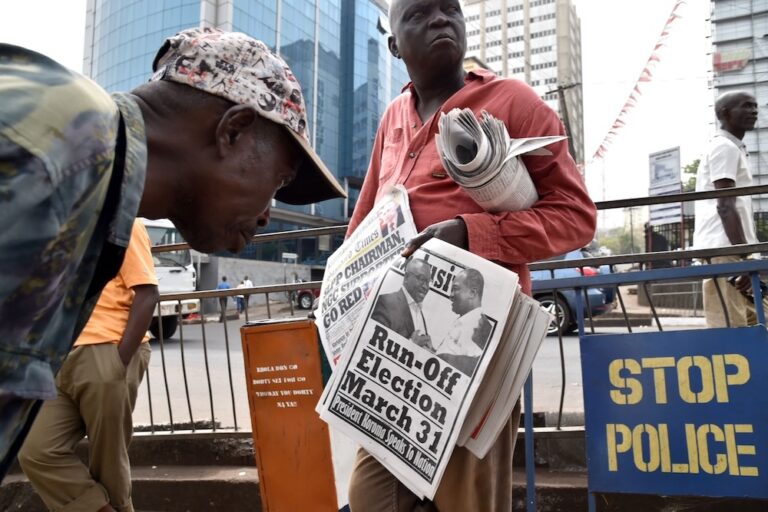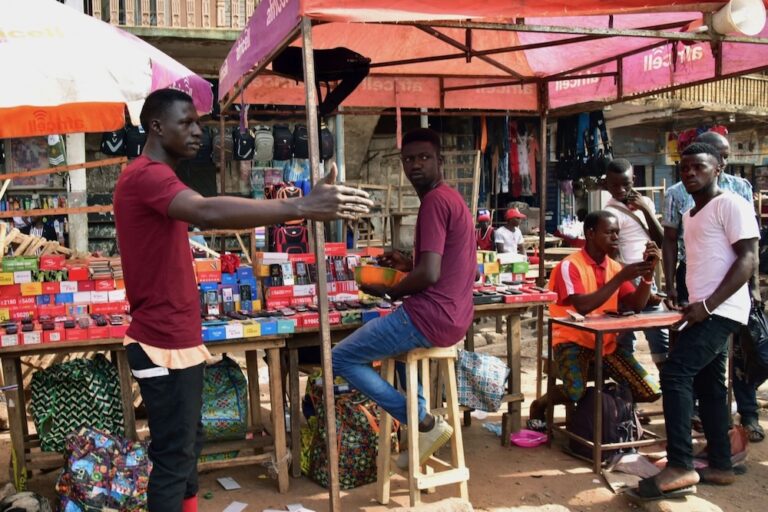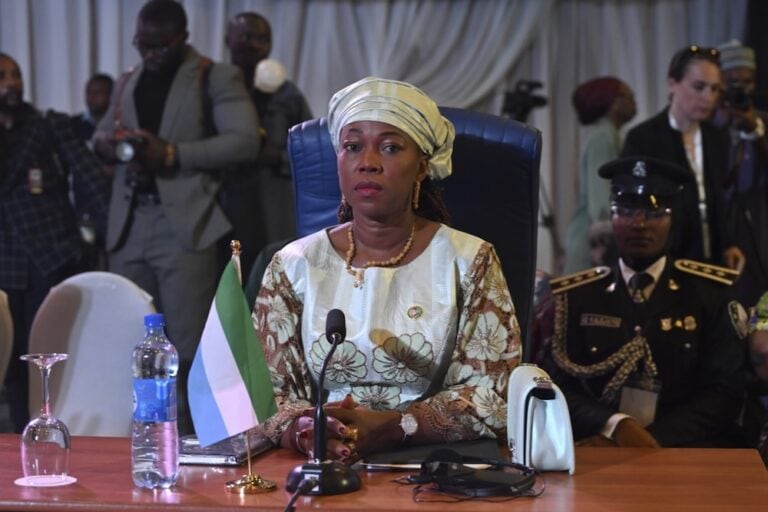(CPJ/IFEX)- On 11 October 1997, John Foray, acting editor of the newspaper “Democrat”, and freelancer Abdul Kposwa were beaten and arrested by army officers who then took them to Pademba Road prison where they were detained without charge. Elsewhere, Umaru Fofana, a freelancer for the “Vision” newspaper and a stringer for the British Broadcasting Corporation […]
(CPJ/IFEX)- On 11 October 1997, John Foray, acting editor of the
newspaper “Democrat”, and freelancer Abdul Kposwa were beaten and
arrested by army officers who then took them to Pademba Road
prison where they were detained without charge. Elsewhere, Umaru
Fofana, a freelancer for the “Vision” newspaper and a stringer
for the British Broadcasting Corporation (BBC), was shot in the
leg and tortured by army officers who claimed he was suspected of
reporting for former President Tejan Kabbah’s clandestine radio
station, FM 98.1. Fofana was treated at the Military Hospital in
Freetown and released.
On 10 October, secret police arrested freelancer Abdul Salam
Timbo on charges of subversion. Information on his whereabouts
are not yet available.
On 8 October, freelancer Donald Davis was arrested and detained
at Pademba road prison on charges of subversion. That same day,
three armed men and a civilian of the Criminal Investigation
Division (CID) came to the residence of “Punch” newspaper editor
David Tambaryoh to arrest him for aggravated assault of Ibrahim
Seaga Shaw, editor of the “Expo Times”. Tambaryoh was charged
with subversion. The men claimed that the arrest was ordered by
one Lieutenant Jalloh and the President’s office, via a Mr.
Njauja, head of the CID. Tambaryoh refused to leave his house
until they presented an arrest warrant. The soldiers left his
house and returned in fifteen minutes without a warrant, a truck-
load of soldiers and a taxi to escort Tambaryoh to the CID
offices. Shaw, who has developed close ties with the military
junta, followed the convoy.
At the CID, Tambaryoh was informed that Shaw filed the assault
charges and that the subversive activity charges were a result of
his alleged communication with ousted President Kabbah,
Ambassador to the United Nations James Jonah, and Ambassador John
Ernest Leigh in Washington to whom Tambaryoh was accused of
forwarding sensitive information. He denied all charges but was
detained for 72 hours on 10 October. Soon after Tambaryoh’s
release on unspecified conditions, he was informed that his two
security guards had stopped by the “Punch” offices looking for
him and his deputy director. Tambaryoh is currently in hiding.
During Tambaryoh’s detention, his wife, who is also in hiding,
transported some of her husband’s belongings to her elder
sister’s house then removed it to a safer place. That night,
armed men arrived at Tambaryoh’s sister-in-law’s house and
demanded his property. Although she denied having it, the
soldiers looted her house and raped her and her daughter twice.
Fellow journalists believe that the false charges of aggravated
assault against Tambaryoh resulted from a verbal altercation
between Tambaryoh and Shaw during the 6 October editorial meeting
of the Sierra Leonian Association of Journalists (SLAJ). At the
meeting, SLAJ reminded the 28 editors present that SLAJ had
issued a statement condemning the military junta and rejecting
its authority. Recently, the regime had ordered all newspapers to
re-register, and some SLAJ members felt that since they already
registered in January, there was no need for them to register
again. The editors voted on the matter, and only three of the
twenty-eight editors were in favour of re-registration. Shaw was
visibly angry at this outcome and he and Tambaryoh got into a
verbal altercation.
Two executive members of SLAJ, Foday Fofana, editor of the
“Concord” newspaper and Acting Secretary of SLAJ, Fallah
Ensa-Ndemah, are expected to be arrested by army officers on
counts of subversion, in connection to SLAJ’s vehement statement
against the re-registration of newspapers and for statements
against the interest of the state. Both have gone underground.


